Things the parent of a child on the spectrum never wants to hear. And what you can say instead
Posted on
 Kelly Kemp knew people meant well when they fumbled through conversation with her about daughter Tink being on the autism spectrum.
Kelly Kemp knew people meant well when they fumbled through conversation with her about daughter Tink being on the autism spectrum.“When your child is diagnosed with autism, there’s a lot to come to terms with,” Kerry says.
“Many parents go through a kind of grieving process, almost mourning the loss of the child they thought they’d have.
“But one thing I didn’t really think about,” Kerry adds, “was how others – in particular, friends and family – would react to my daughter, Tink’s, diagnosis.
Kerry tells Huff Post Parent Voices there are several things that people will say to parents when they hear of their child’s diagnosis. Here are some examples and suggestions of things to try instead!
Comment: “I’m sorry.”
This is probably the phrase I heard most often in the immediate aftermath of Diagnosis Day (DD). Most of my closest friends and family have had no real experience of disability or autism specifically. Most people, on seeing me for the first time after DD began a conversation with, “I’m sorry to hear about Tink…” Of course, it was the beginning of my personal journey too, and I didn’t know any better, so I’d just nod and say, “thank you.” Now, of course, we’re 18 months on and I’m not remotely sorry she has autism. It’s what makes her the fantastic little person she is! I can’t imagine her any other way and we certainly don’t need people’s pity. I’m not ungrateful, though. They meant well and were probably, like me, wondering what a diagnosis would now mean for our family. Although a life-long condition, it’s not a death sentence.
What could I say instead?
Instead of saying “I’m sorry”, try asking that very question. “So, what will having a diagnosis mean for you all? Will it help?” Or even, “how do you feel about it?” Really, I had so many emotions running through my mind, I would have liked someone to ask me so that I could have unburdened some of that!
Comment: “Oh, you can’t tell!”
More often than not, you won’t tell that a child is autistic just from looking at them. It’s not as if they have two heads, or a special mark like Harry Potter, I’ve heard it several times about Tink. I’ve even taken to telling people that, “no, it’s amazing how she just looks like a little girl, isn’t it?”
What could I say instead?
If your first instinct is to say something about how you can’t tell, it’s probably best to just keep your mouth shut on this one!
Comment: “Oh, like Rainman?”
No. Not like Rainman. Like my child. Just like everyone else, one autistic person is different from the next. We’re all individuals, and that includes those on the autism spectrum. It’s called a spectrum as the range of abilities and disabilities experienced are vast and varied. Whilst the film Rainman thrust autism into the consciousness of those who never even knew it existed, it’s just one (Hollywood style) interpretation of one person’s condition. Many autistic people will have similar traits to those acted out (brilliantly) by Dustin Hoffman, and many, many others will be nothing like Raymond Babbitt.
What could I say instead?
“Tell me more about him,” is a good start. We parents want to be able to gush to others about how funny our kid is, or how well they can talk now, when once we feared they would never utter an intelligible word. We want to be able to enthuse over how she tried a new food, or how he learnt all the words to a particular episode of his favourite programme. We want to celebrate how diverse our children can be, not lump them all under the Rainman umbrella. Heck, that’s why so many of us have blogs and Facebook pages! Ask us!
Comment: “What’s her special talent?”
This is another one that most likely stems from Rainman. People with little experience of autism often have the misconception that all autistics have a special skill or talent. Yes, many have ‘special interests’ (or obsessions, let’s not beat about the bush!) and many others are exceptionally gifted in one area or another. Perhaps it’s learning to play music by ear, after only the first time hearing a piece, or perhaps it’s amazing mathematical ability. Although it isn’t currently diagnosed in the UK any more, these people would most likely have received a diagnosis of ‘Asperger’s Syndrome’ at one time. However, there are many others on the spectrum who do not possess an incredible ability to solve Rubik’s Cubes, or who could tell you what day of the week it was on 15th September 1872. Do you have a special talent? I don’t (unless you count fitting my fist into my mouth?). For some autistic people, just getting through the day is enough.
What could I say instead?
Try asking, “so, what kinds of things does she like?” or, “is he interested in anything in particular?” That way, if the child does have a certain affinity for something, it gives us parents a chance to talk about it without a) sounding like we’re boasting and, b) enthusing without making our kid sound like Rainman!
Comment: “I don’t know how you do it.”
If I had a pound for every time I’ve heard this gem, I’d be sunning myself in the Seychelles instead of sitting here writing this! It’s another well-meant comment, but really, think about it. We do it because we have to. We’re parents, just like you. Our purpose is to make sure our children are fed, clothed, watered, warm, healthy, educated, stimulated, happy. Just like yours. Yes, it can be tough. Being a parent is tough! Yes, autism brings its own set of interesting challenges and there are some really, really hard days (or weeks, or months…). But, for all of those difficult times, there are many, many wonderful ones too. I bet there are days when you wish you could get in the car and drive away for a while to escape the bickering and the whining and the tantrums? But you don’t, do you? Or at least, only to the shops and back maybe!
What could I say instead?
Perhaps ask about what help we get. “What sort of support network do you have?” We like to talk about the struggle we have as parents to obtain support services. That’s the difficult part, the part that would make the actual parenting part that bit easier. And if the person you’re talking to says that they have no support, then perhaps you can help them? You could be a listening ear from time to time, or even help them to find their nearest support group so they can chat to other parents just like them.
So, next time you meet a parent and you hear their child is autistic (or even has Down’s Syndrome, Cerebral Palsy, ADHD or any of the other hundreds of conditions and disabilities out there), please, please think before you speak. We know you mean well and we welcome questions and comments, but some are more welcome than others!

